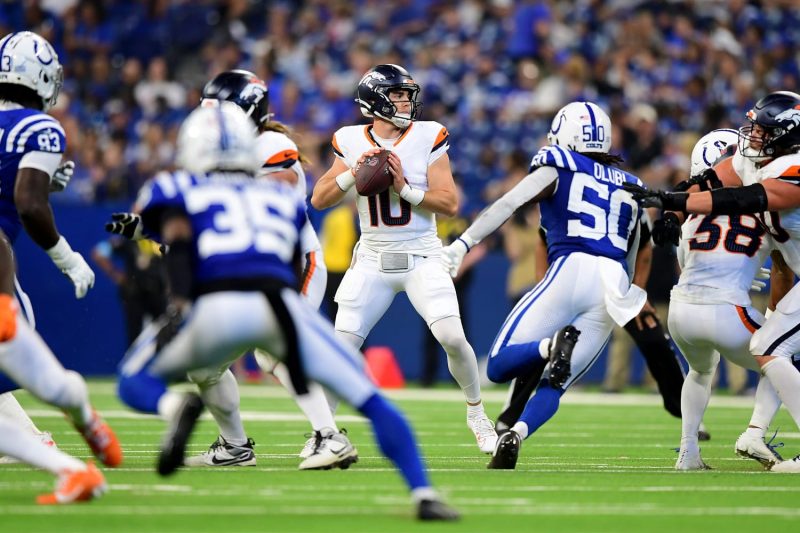Researchers have begun measuring the impact of legalized sports gambling on American households, and the initial results paint a worrisome picture about how its expansion has affected bettors’ finances.
In separate papers released this month, academics have found that households in states where gambling was legalized saw significantly reduced savings, as well as lower investments in assets like stocks that are generally considered more financially sound.
Meanwhile, states that legalized sports betting saw their residents’ aggregate credit scores decrease, while bankruptcies increased.
“Legalization is not a free lunch,” said Scott Baker, associate professor of finance at Northwestern University’s Kellogg School of Management and the lead author on one of the papers.
The “lunch” has nevertheless been substantial for state coffers: New York, which has a 51% tax rate on mobile sports wagering, raked in $862 million last year in tax revenues from the activity and more than $2 billion over the past three years, according to Legal Sports Report — with most of it going toward education. New Jersey, the first state to allow online sports betting, has a much lower tax rate — though it is contemplating an increase — but has still seen $549 million in tax receipts from sports betting since 2018.
Legalization is not a free lunch.
Scott Baker, associate professor of finance at Northwestern University’s Kellogg School of Management
Online sports betting is legal in 30 states plus the District of Columbia and Puerto Rico, and the authors estimate total monthly wagers have climbed from an average of $1.1 billion per month in 2019 to $14 billion in January 2024. North Carolina became the most recent state to offer online sports betting earlier this year.
But there has been a clear cost, according to the studies’ authors.
Using datasets showing deposits and withdrawals into and out of online sports betting platforms like FanDuel and DraftKings, as well as to and from equity brokerage accounts like Charles Schwab, E-Trade, Vanguard and Fidelity, Baker and his co-authors found that legalization has led to higher credit card balances, lower access to credit, a reduction in longer-term and higher-yield investments, as well as an increase in lottery play — with the effects particularly pronounced among financially constrained households.
“It’s not just moving entertainment dollars from one company to another,” Baker said. “Rather, they’re drawing from sources of their household budget that policymakers are trying to increase” like stock investment accounts, he said.
And the effects aren’t limited to an individual: Baker’s team found bettors were more likely to have received pandemic-era child tax credits, regardless of income, suggesting they were more likely to have children.
In a separate study led by Brett Hollenbeck, an associate professor of marketing at UCLA’s Anderson School of Management, researchers found that compared with states that did not implement sports gambling, states that did so saw credit scores drop by a statistically significant, though modest, amount, while bankruptcies increased 28% and debt transferred to debt collectors climbed 8%. Auto loan delinquencies and use of debt consolidation loans also increased, they found.
“While many consumers get real enjoyment from legal gambling, and states benefit in the form of additional tax revenue, there is a corresponding concern that the introduction of sports gambling and the ease at which consumers can now bet online are negatively harming consumer financial health,” they write. “Our paper provides evidence that this concern is well founded.”
The papers have not yet been peer-reviewed, but both sought to rule out other causes for the declines in household financial well-being, like national economic trends, that might have also affected household spending and investment decisions. They note instead that the timing of a given state’s legalization has tended to map neatly onto the beginning of households’ financial deterioration.
Some state lawmakers have taken note of the negative impact. In New Jersey, Senate President Nicholas Scutari recently introduced a bill that would create a gambling treatment diversion court, citing the fact that gambling expansion has created “unrestrained opportunity for persons with problem gambling or disordered gambling to become engulfed in destructive behaviors.”
The New York State Gaming Commission noted a 26% increase in problem gambling-related calls to the Office of Addiction Services and Supports from 2021 to 2022, the most recent period for which data has been released.
Yet states continue to see gambling as a cash cow. While Adam Candee, editor-in-chief of Legal Sports Report, said it would be unfair to characterize state approaches to sports gambling legalization as a search for a panacea to their budget woes, many are now introducing legislation to further capitalize on the growth in gambling, whether through increasing tax rates or replacing existing levies with funding from gambling.
Meanwhile, the industry will continue to grow — although Candee said the rate of growth will slow until California and Texas decide to legalize sports betting, and there is no sign that they will do so imminently, he said.
But he said that as money continues to pour in, gambling platforms will acquire ever greater leverage to try to get some form of legalized gambling passed in those states, not to mention all others, as an entryway into legalizing sports betting.
Earlier this year, the major sports betting platforms formed the Responsible Online Gaming Association to address problem gambling. Its members have committed more than $20 million to fund research, education and awareness campaigns, as well as to develop a “clearinghouse” of players who display high-risk attributes.
Yet there is likely a limit to how much the platforms will seek to restrict their own activities.
“Ultimately, most of the major sports books in the U.S. have shareholders to answer to,” Candee said, noting the largest ones, including DraftKings, FanDuel and BetMGM, are all publicly traded. “And those shareholders are going to want to see growth and profit.”

